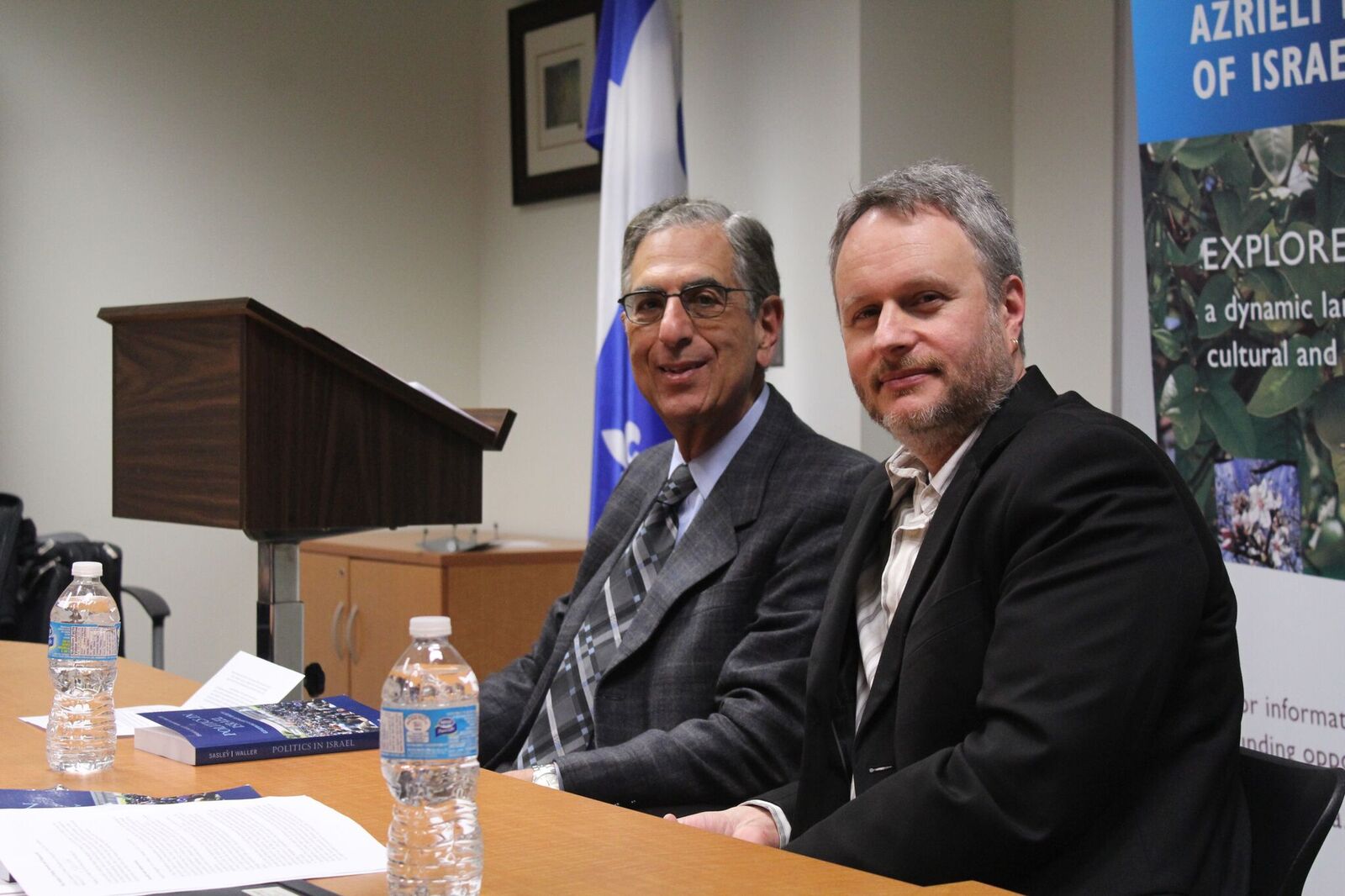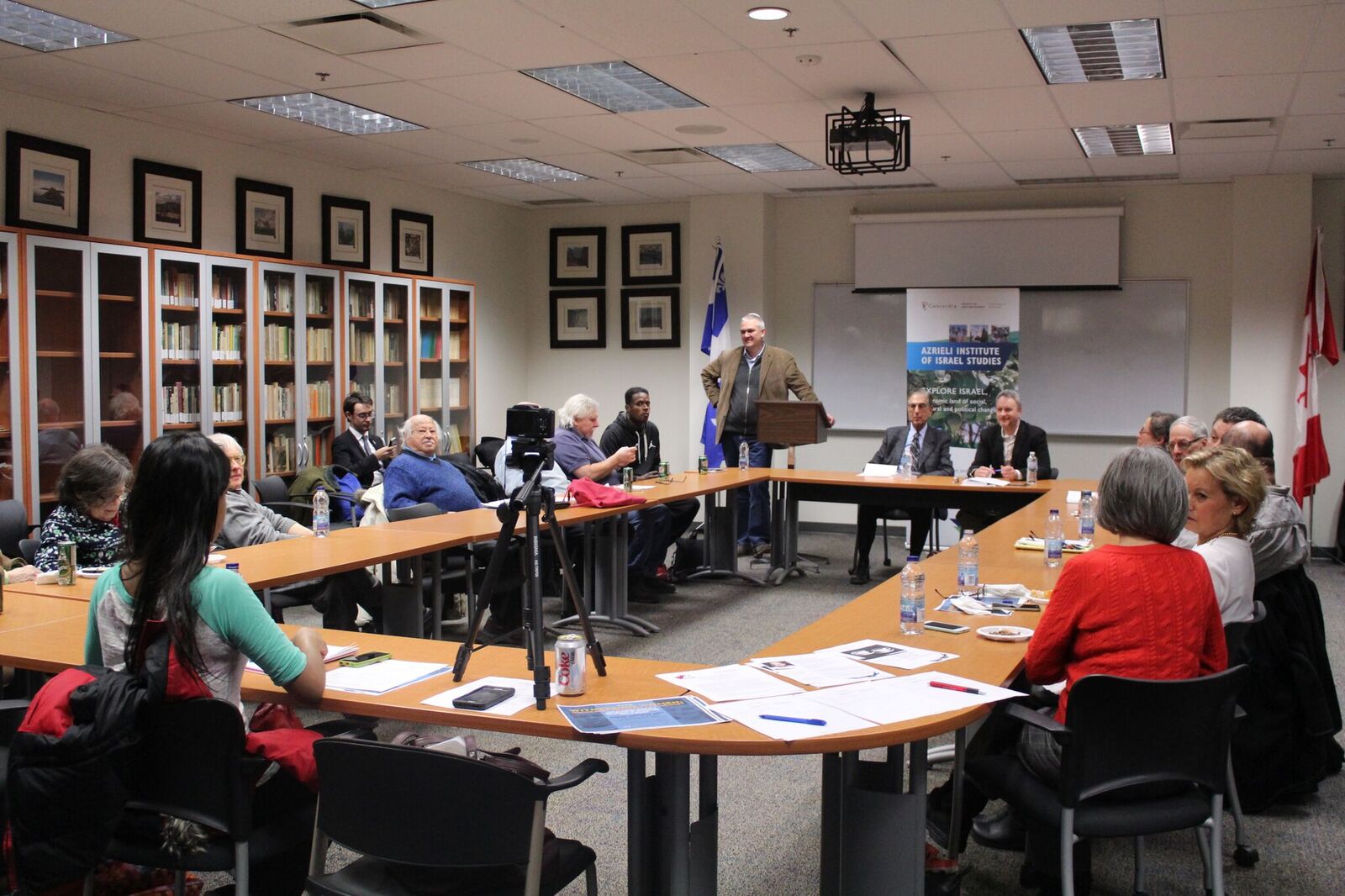Two professors discuss their new book Politics in Israel: Governing a Complex Society
Speakers Harold Waller and Brent Sasley discussed the historical and sociological developments in Israel in a lecture last week. The major ideas presented during the event came from their book, Politics in Israel: Governing a Complex Society, which was released on Feb. 3.

Waller, a political science professor at McGill University, said he had the idea to write the book in his early years of teaching in the political science department. Waller said the books he used to teach with were focused on the Arab-Israeli conflict and Israel-Palestinian issues, but lacked context of zionism. Zionism is a national revival movement which focuses on the re-establishment of Jewish sovereignty in the Land of Israel (area).
“I wasn’t entirely satisfied with the books that I had used,” said Waller. “They didn’t have all of the material that needed to be in a book like this, and they had excess material that detracted from the main points of my teaching.”
Waller contacted Sasley, an associate professor at University of Texas at Arlington, since they both taught similar classes and both wanted to address issues surrounding zionism. This encouraged them to write their own book, said Waller.
“What we really are trying to achieve is to enable readers to comprehend Israel on its own, and not simply as a major actor in the conflict of the Middle East,” Waller said.
He also debunked some common myths about Israel during his talk. Waller said many of his former students often categorized Israel as a state about the Jewish religion, when in fact “Israel forces a Jewish state, but it is not a state about the Jewish religion—[it’s about] Jewish peoplehood.”
Sasley said Israel has never been a liberal democracy the way Canada is. “That liberal democracy never really took place in Israel—it’s still heavily collectivist,” Sasley said.
Sasley emphasized that, in English-speaking countries, an important problem Israeli students face is trying to explain what it means to be Jewish and democratic at the same time. “Most students grew up in a democracy where you give your loyalty to a set of institutions, ideas and to a sense of citizenship,” he said. Sasley said their book elaborates on the difference between the religious meaning and ethno-meaning of what it means to be Jewish.
Both Sasley and Waller hope their book will be useful for courses taught outside of North America, in order to provide a different perspective on the politics in Israel. “I believe that any person who wants to be well-informed should understand how the politics operate and how decisions are made in the Israeli government,” Waller said.




